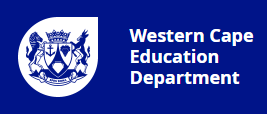Public-Private Partnership initiative aims to attract investment into education and establish the Western Cape as an innovation powerhouse.
Edu Invest: A public-private partnership initiative to attract investment and fuel education innovation in the Western Cape.
Emphasis on attracting investments into low-cost new private schools to alleviate overcrowding and improve access to quality education.
The initiative highlights the commitment of both public and private sectors to reshape the educational landscape, promote collaboration, and create a brighter future for the Western Cape.
The Western Cape Education Department, in collaboration with Wesgro, the official agency responsible for promoting tourism, trade, and investment in the region, has launched a ground-breaking initiative, Edu Invest. This public-private collaboration seeks to not only drive investment into the education sector but also ignite innovation throughout the region.
By uniting a diverse spectrum of stakeholders, Edu Invest jumpstarts investments in high-quality education, fosters collaboration, and fuels innovation.
Edu Invest will position the Western Cape as the premier education and innovation hub on the continent, making it the go-to choice for investments in the education sector. It represents a pivotal moment driven by a dual mission. First and foremost, it offers a gateway to investment opportunities in the education sector, an arena poised for remarkable transformation and substantial growth. Simultaneously, it serves as a unifying platform, nurturing collaboration among stakeholders with the shared goal of cultivating long-term public-private partnerships. This convergence of interests and investments has strategic significance, shaping the future of education in the Western Cape and generating a robust skills pipeline.
The initiative focuses on attracting investments in new private schools, including those that serve learners in poor communities, to create more classrooms and alleviate overcrowding in schools. This step is crucial for improving access to quality education and enhancing overall educational outcomes.
Currently, the Western Cape has a total of 1,754 schools out of which 1,449 are public schools. We have a much lower proportion of independent schools than provinces like Gauteng. Despite an additional 18 000 learners joining our province’s education system each year, we do not have enough independent schools, and particularly low-fee independent schools, complementing our public school offering.
It’s becoming increasingly urgent to establish new schools in the Western Cape, which is known for its dedication to retaining students and delivering high-quality education.
The learner-to-teacher ratio in schools remains persistently high, especially for government-funded teachers across all nine provinces. This essentially means that teachers paid by the government are dealing with an overwhelming number of students in their classrooms. The availability of new school places in independent schools would help to address overcrowding in public schools.
David Maynier, Western Cape Minister of Education, emphasised that the future of SA hinges on a strong education system that works hand in hand with the private sector and integrates smart solutions to address learning setbacks.
“We are not just paying lip service to change in the Western Cape. We are actively collaborating with businesses to improve teaching and learning outcomes and expand access to education in our province. We are wholeheartedly embracing innovative teaching and learning methods,” Maynier stated.
He underlined the pressing demand for additional classrooms and a strengthened education sector, especially in the aftermath of the pandemic, which resulted in substantial learning losses.
“We need to all work together to build a world-class education system. Edu Invest promises to be a game-changer, promoting education innovation, collaboration, and driving investments in the Western Cape’s education sector. This initiative demonstrates the commitment of both public and private sectors to reshape the educational landscape and create a brighter future for the region,” Maynier said.
Wrenelle Stander, CEO of Wesgro, underscored the critical role of education innovation to drive competitiveness.
“Edu Invest reflects Wesgro’s commitment to advancing the business of education. Education is the cornerstone of a thriving economy, essential for both economic prosperity and social well-being,” she emphasised. Private sector investments, Stander stated, will enhance academic achievements and overall competitiveness.
Stander highlighted the need for pioneering methods, state-of-the-art technology, contemporary curricula, indispensable teacher training, and a complete overhaul of our perspective on education.
She added: “We are amidst global competition, racing to secure new markets, investments, skills, and technology. To not only survive but flourish on the global stage, we must craft a fresh growth narrative with education as its linchpin. For businesses, it’s not just a strategic move; it’s an investment in the young talents who will shape our economic future.”
Distributed by APO Group on behalf of Western Cape Education Department, South Africa.

